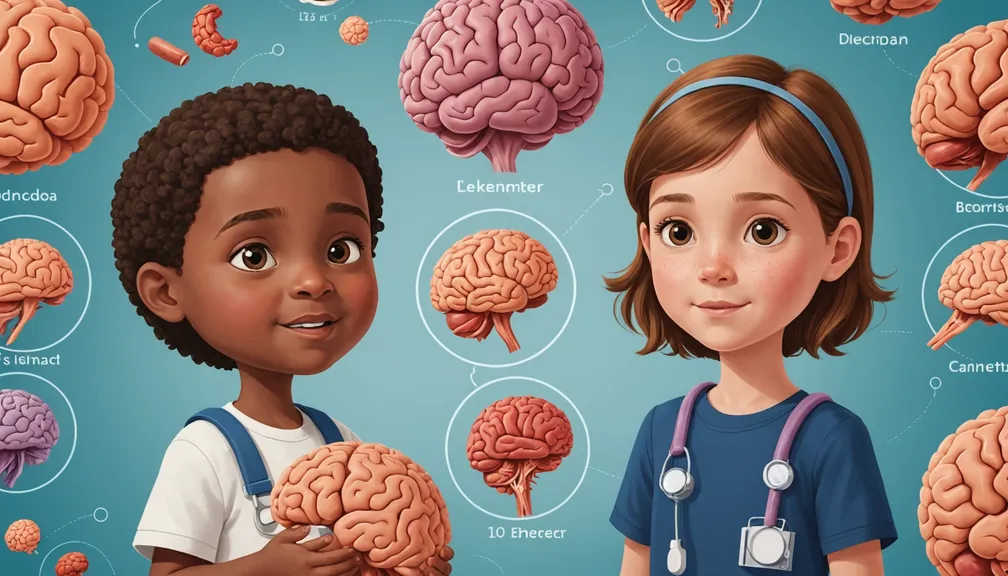The Treatment Journey: Hospital Stays, Procedures, and Expectations
Navigating the journey through pediatric cancer treatment can be challenging for both children and their families. This lesson provides a comprehensive overview of what to expect during hospital stays, various medical procedures, and how to manage expectations throughout the treatment process.
Understanding Your Treatment Plan
Meeting Your Treatment Team
Your child’s treatment team is composed of various health professionals who work together to provide comprehensive care. Key members include:
- Pediatric Oncologist: A doctor specializing in cancer treatment for children.
- Surgeon: If surgery is needed to remove tumors or affected tissues.
- Radiation Oncologist: A specialist who administers radiation therapy.
- Nurses: Provide day-to-day care and support.
- Pharmacist: Manages and dispenses medications.
- Social Worker: Offers emotional support and resources for families.
- Dietitian: Ensures your child receives proper nutrition during treatment.
Types of Treatments
Pediatric cancer treatments may include one or a combination of the following:
- Chemotherapy: Uses drugs to destroy cancer cells.
- Radiation Therapy: Utilizes high-energy rays to target and kill cancer cells.
- Surgery: Removes cancerous tumors or affected areas.
- Immunotherapy: Boosts the body’s immune system to fight cancer.
- Stem Cell Transplant: Replaces damaged bone marrow with healthy stem cells.
Hospital Stays
What to Expect During Your Stay
Hospital stays can vary based on the type and intensity of treatment. Here’s what you might experience:
- Admission Process: Upon arriving, your child will undergo assessments to tailor the treatment plan.
- Daily Routine: Treatments may be scheduled at specific times daily or weekly.
- Accommodation: Some hospitals offer private rooms, while others may have shared spaces.
Preparing for the Hospital
Preparation can ease the stress of hospitalization:
- Pack Essentials: Bring comfortable clothing, toiletries, and favorite toys or books.
- Plan for Meals: Understand hospital meal options or arrange for special dietary needs.
- Stay Connected: Ensure you have means to communicate with family and friends.
Daily Routines and Activities
Maintaining a routine can provide a sense of normalcy:
- Treatment Sessions: Chemotherapy or radiation sessions will be scheduled regularly.
- Rest Periods: Allocate time for rest to help your child recover.
- Recreational Activities: Engage in age-appropriate activities to keep your child entertained.
Procedures and Treatments
Understanding Different Procedures
Each treatment type has specific procedures associated with it:
- Chemotherapy: Administered through intravenous (IV) lines or oral medications.
- Radiation Therapy: Delivered externally or internally, targeting specific body areas.
- Surgical Procedures: Performed under anesthesia to remove cancerous tissue.
Preparing for Treatments
Preparation ensures treatments are as comfortable as possible:
- Communication: Discuss any fears or concerns with the medical team.
- Fasting: Some treatments may require fasting beforehand.
- Transportation: Arrange for transportation, especially if sedation is involved.
Managing Side Effects
Managing side effects is crucial for maintaining quality of life:
- Nausea and Vomiting: Medications can help control these symptoms.
- Fatigue: Encourage rest and gradual activity levels.
- Skin Care: Follow guidelines for skin care during radiation therapy.
Emotional and Psychological Support
Support for Your Child
Emotional well-being is vital during treatment:
- Counseling: Access to child psychologists or counselors can help your child express their feelings.
- Support Groups: Connecting with other children undergoing treatment can provide comfort.
- Creative Therapies: Art, music, or play therapy can aid in emotional expression.
Support for the Family
Supporting the entire family is essential:
- Family Counseling: Helps family members cope with the stress of treatment.
- Respite Care: Allows caregivers to take breaks and recharge.
- Educational Resources: Provides information to help families understand the treatment process.
Returning Home
Preparing for Discharge
Transitioning from hospital to home requires careful planning:
- Discharge Planning: Collaborate with the medical team to understand home care needs.
- Home Setup: Ensure your home is equipped with necessary medical supplies and a safe environment.
- Follow-Up Appointments: Schedule and attend post-treatment visits with your healthcare providers.
Follow-Up Care
Ongoing care is vital for recovery:
- Regular Check-Ups: Monitor your child’s progress and address any lingering issues.
- Medication Management: Ensure medications are taken as prescribed.
- Lifestyle Adjustments: Incorporate healthy habits to support overall well-being.
Health Professionals Who Can Help
A multidisciplinary team is essential for comprehensive care. The following professionals play key roles in your child’s treatment journey:
- Pediatric Oncologist: Oversees cancer treatment plans.
- Surgeon: Performs necessary surgical procedures.
- Radiation Oncologist: Administers radiation therapy.
- Nurse Navigator: Coordinates care and assists with treatment logistics.
- Social Worker: Provides emotional support and connects families with resources.
- Dietitian: Develops nutrition plans to support treatment and recovery.
- Psychologist or Counselor: Addresses mental health needs and provides coping strategies.
- Physical Therapist: Assists with maintaining mobility and physical strength during treatment.
Understanding the treatment journey for pediatric cancers involves knowing what to expect during hospital stays, being informed about various medical procedures, and recognizing the importance of emotional and psychological support. By working closely with a dedicated team of health professionals and maintaining open communication, families can navigate this challenging journey with greater confidence and support.






